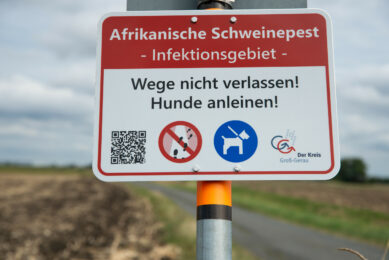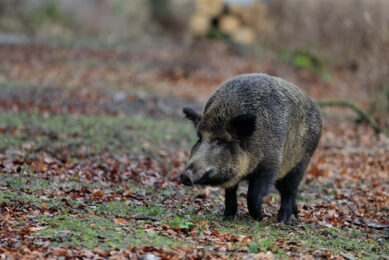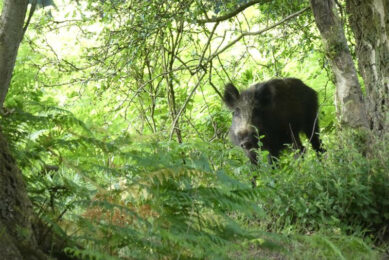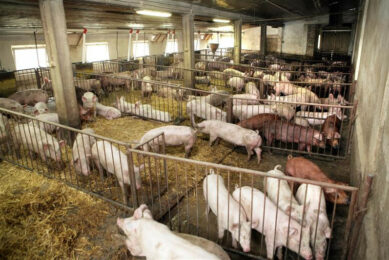Preventing ASF entering Canada

Pig industry leaders and farmers alike throughout North and South America are extremely concerned that African Swine Fever will somehow infect pigs in their countries. What does Canada do to keep the virus out?
First of all, it helps that nowhere in this part of the world has the virus been found in wild boar populations, but passive surveillance continues in these populations for ASF and various other diseases.
For Canada, the biggest threat is smuggled meat, said Dr Egan Brockhoff, a swine veterinarian and partner at Prairie Swine Health Services in Red Deer, AB, Canada, and veterinary counsellor for the Canadian Pork Council. “We are focussing our efforts on all the possible ways of virus introduction and reducing risk along those pathways,” he explained.
Travellers bringing in illegal meat
“Travellers bringing in illegal meat is an established high-risk pathway. That’s how Foot-and-Mouth Disease (FMD) was introduced into Canada after the Second World War. Some sausage was brought to a farm and some of the meat was thrown out and got fed to the pigs.”
Contaminated meat could be shipped into Canada by mail, in shipping containers or by airline travellers themselves (on their persons or in luggage). Dr Brockhoff said, “We know that Japan, Korea, Taiwan and Australia have all had ASF-contaminated meat products entering their borders, and also in the case of Australia, FMD. The Canadian pork industry has asked that many more sniffer dogs be put into service at Canadian airports. They are a highly-effective tool.”

Read more about pig health in the Pig Progress Health Tool
More sniffer dogs wanted to avoid ASF from entering
Since the Canadian pork sector sent letters of request for more sniffer dogs to the federal government about a month ago, Dr Brockhoff said engagement from the Minister of Agriculture, Canadian Food Inspection Agency (CFIA) and Canadian Border Service Agency has been ‘very good’.
It’s impossible for Dr Brockhoff or anyone to say whether more dogs will be put into place fast enough to help prevent a possible ASF breach – or whether the existing dog pool might find a smuggled meat product that turns out to be ASF-positive before then. In the big picture, he said, “I think we have to recognise that we’ve had contaminated meat products coming to our borders for years. We have to get ahead of it. We are keen to see more dogs come into play.”
Other serious potential entry pathways for ASF into Canada are contaminated packaging and feed ingredients. Dr Brockhoff noted that soy-based ingredients seem to be the best at keeping the virus alive, and also that the Canadian swine industry imports a great deal (or even all) of certain vitamins, minerals and amino acids that are put into feed.
Canada’s small pig operations
Canada’s backyard and small pig operations may pose a risk for virus spread in that there are likely some, said Dr Brockhoff, that are not part of the national pig traceability scheme, PigTrace. All producer locations across the country that transport even one pig from one location to another must be registered with PigTrace.
“We are reaching out to make sure backyard and small farmers who haven’t been exposed to information on biosecurity protocols understand them and apply them,” said Dr Brockhoff.
Follow all our ASF updates at our ASF mini-site
Biosecurity as powerful tool
“Biosecurity is the most powerful tool we have for keeping viruses that may have entered the country away from pigs, or containing the virus on a given farm. Our commercial producers are very aware of these protocols, which are part of the Quality Assurance Program. We’re reaching out to small producers through farm magazines, social media and producer meetings.”
As in other countries, Canada is putting huge effort into keeping ASF out, said Dr Brockhoff, from both the pig sector and the government angle. It remains to be seen whether these efforts will prove fruitful. Canada will host an international gathering called the ASF Forum at the end of April in Ottawa, which will have a focus, says Dr Brockhoff, on prevention of entry.











